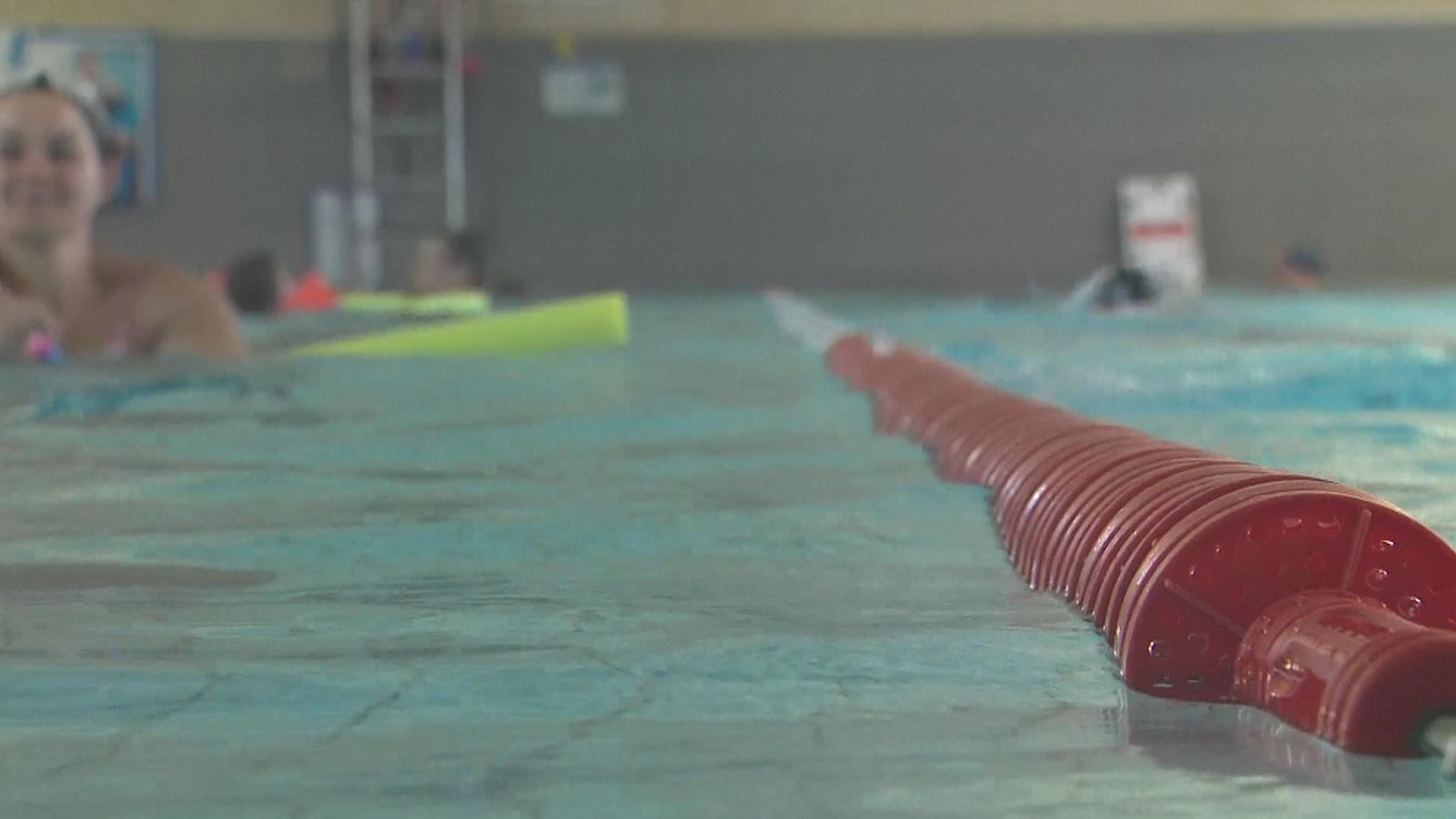Rising energy costs could force public swimming pools to close, according to governing body Swim England.
One pool, in Tadcaster in North Yorkshire, expects its gas and electricity bills to more than double by the end of next year, adding £100,000 to their costs.
Jane Nickerson, chief executive of Swim England, says rising costs have compounded problems caused by the pandemic.
“It’s killing pools, energy costs have gone up 120% and pools are high energy users,” she said.
“Before COVID we were forecasting we could lose 2,000 pools across the country by the end of the decade, Covid and energy have made that worse.”
According to Swim England, the health benefit of swimming can be costed at more than £350m a year, with four out of ten pool users saying it’s their only exercise.
At Tadcaster Community Swimming Pool, which is run by a charitable trust, the annual electricity bill is expected to jump from £50,000 to £135,000 when the fixed tariff ends in September.
Cost of living crisis: Amount of food wasted by UK households revealed as charity warns ‘things going into bins that could be going into bellies’
Energy security strategy: Boris Johnson pledges to ‘do more’ on cost of living crisis as he defends energy strategy
Cost of living crisis: ‘Limit to amount of taxpayer’s money’ that can be used to help with energy bills, Boris Johnson says
At today’s prices their gas bill will double from £35,000 to £70,000 when that fixed tariff ends twelve months later.
Chris Porter, facility manager for the trust, says he had been planning to break even this year, but the energy price rises make that unlikely.
“We have to look at everything, how we operate, the voluntary groups that come, in the clubs that use it, the schools that use it, through to all the customers,” he said.
“We’re talking about over £100,000 of increase over a twelve-month period going forward, we’ve probably got a couple of years at that level of deficit to remain open unless something changes.”
The Hugan family, enjoying a Sunday swim alongside 80 or so others on the pool’s busiest day of the week, fear rising energy costs will lead to higher admission fees.
Matt, Allie and four-year-old Violet paid £11.80 for their morning swim.
“If you had to pay a couple more pounds to come that wouldn’t be too bad, but for some families that’s not going to be realistic,” Ms Hugan said.
“We’re lucky that for us it’s a cost that’s affordable but for some families that’s just not going to be an option any more.”








